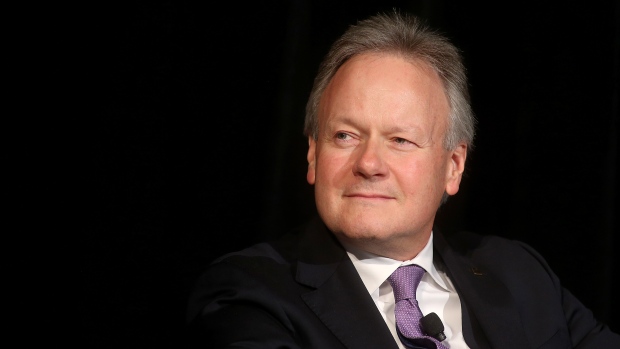Dec 4, 2018
With oil swinging, Bank of Canada expected to proceed with caution

While the Bank of Canada is widely expected to hold interest rates Wednesday, economists will be watching closely to see how recent wild swings in oil prices and Alberta’s planned production cuts could affect the central bank’s path forward.
The Bank of Canada should brace for a “temporary shock” and even hold off on hiking rates until its March meeting, according to Brian DePratto and Omar Abdelrahman, senior economists with TD Economics.
“The path of global oil prices is highly uncertain, and any negative developments may lengthen the curtailments and their economic impacts,” DePratto and Abdelrahman wrote.
“There is little to be lost by taking a ‘wait and see’ approach… Waiting until the March interest rate decision to hike again offers more time to observe that price dynamics, take-away capacity and general economic dynamics are all sending the right signal.”
Bank of Canada Governor Stephen Poloz’s decision Wednesday, and his speech on Thursday, comes after the Alberta government announced plans Sunday to order the province’s oil producers to curtail output by 325,000 barrels a day, or 8.7 per cent, starting in January until the levels of excess oil in storage are drawn down.
Oil prices have been under intense pressure in recent months. Western Canada Select crude closed at US$13.46 a barrel on Nov. 15, the lowest in Bloomberg data stretching back to 2008.
As of Tuesday afternoon, the market did not expect a December rate hike, but expectations for the bank’s Jan. 9 decision were mixed, with the implied probability of a 25-basis-point increase for next month sitting at 61.4 per cent.
Alberta’s production cut will hit Canada’s gross domestic product upwards of two per cent annualized, but ultimately will not shake up monetary policy, according to Benjamin Reitzes, director of Canadian rates and macro strategist with BMO Capital Markets.
“It will put a serious dent in the GDP forecast to start 2019, with an initial Q1 growth estimate pegged at about 0.5 per cent, down from two per cent,” Reitzes wrote in a note to clients, referring to Alberta’s output cut.
“For the BoC, their growth forecast will be impacted, but the drop in production is expected to be temporary and therefore shouldn’t have a big impact on policy.”
Poloz will have to acknowledge the “modest hit” that oil production cuts will have on Canada’s GDP growth, and the potentially weaker oil sector capital spending, CIBC Capital Markets economists Royce Mendes and Avery Shenfeld wrote in a note to clients.
And with the backdrop of the U.S. Federal Reserve sounding less assured that interest rates will keep climbing, “that sets up the Bank of Canada for an obvious pause in rates this week,” Mendes and Shenfeld wrote. “But the more interesting question is how much it will choose to walk back its assuredness that 2.5 to 3.5 per cent is where we’re headed thereafter.”
Indeed, Poloz is likely to take a far less positive tone than in October, when the bank raised its overnight benchmark rate by a quarter point to 1.75 per cent and indicated a need to bring rates to levels that are “neutral.”
“The BoC was particularly upbeat in October, but with oil falling sharply, the Fed sounding a bit more dovish, and the Q3 GDP details on the soft side, a more cautious tone is expected,” Reitzes said.
With files from Bloomberg


